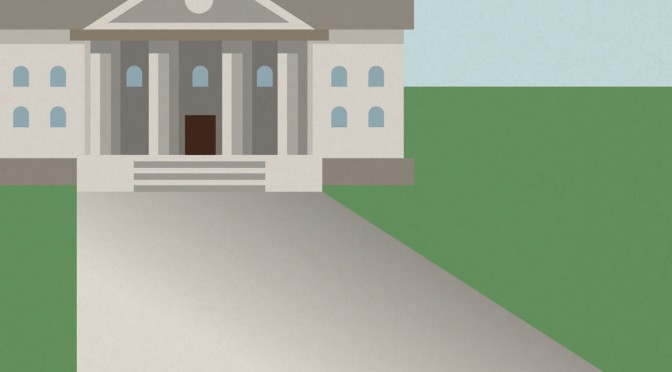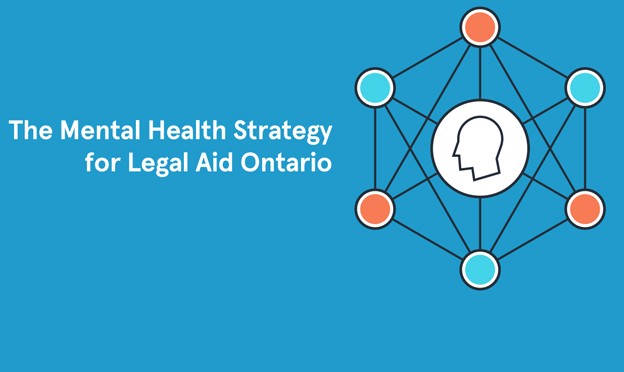Legal Aid Ontario (LAO), as the provincial legal aid agency, has a primary responsibility to promote access to justice for low-income Ontarians, including those who have experienced or are experiencing domestic violence. LAO recognizes the barriers and hardship experienced by domestic violence survivors, and prioritizes improving services and expanding access to justice for clients who have experienced domestic abuse. This priority is reflected in LAO’s plan to develop a Domestic Violence Strategy (DVS).
In February 2015, the LAO Board of Directors requested the development of a Domestic Violence Strategy for the organization. A discussion paper “Development of a Domestic Violence Strategy” was released publically by LAO in July 2015. The purpose of this consultation paper was to engage with community partners, including survivors, service providers, lawyers, legal clinics, advocacy organizations, professional associations, government agencies and any interested stakeholders to receive feedback and input on creating a strategy and on shaping the future delivery of LAO’s services and programs for domestic violence survivors. From September 2015 to January 2016, consultations were held across the province. During this time period:
-
23 public consultations were held province-wide (three of which were conducted in French). Over 300 participants registered and attended
-
15 additional invite only consultations with over 100 participants were held with individual organization/community groups
-
Written submissions were also encouraged and accepted. Approximately 20 submissions were received from individuals and/on behalf of organizations
The consultations involved providing an outline of the current LAO services available for domestic violence survivors, group discussion, answering participants questions, as well relationship building with stakeholders.
Overall, participants were extremely supportive of the numerous positive changes LAO has made in the past couple of years which impact domestic violence clients including the introduction of domestic violence training, increased financial eligibility and legal eligibility and the improvement of client service from the Client and Lawyer Support Centre. Participants shared feedback and provided input on LAO services, policies and potential changes and improvements.
Below is a brief overview of “what LAO heard” from the participants who attended a DVS consultation session or provided a written submission. The comments and feedback outlined below are not intended to be all encompassing of or to include all of the comments and feedback received from the consultation sessions. Rather, they are intended to reflect some of the key themes and most commonly raised comments heard across the province. In addition, the key themes raised here are by no means the only ones that will be addressed in the Domestic Violence Strategy.
The key themes raised during the consultation sessions are discussed in turn below include (listed in no order of priority or importance): Domestic violence training and managing LAO’s lawyer panels, financial eligibility, current LAO policies and procedures, LAO services for domestic violence clients, self-representation, community partner relations, public legal information/education and systemic responses to domestic violence.
“What LAO Heard”
Training and Managing LAO’s Lawyer Panels
-
Stakeholders and clients said that LAO staff, per diem duty counsel lawyers and lawyers on LAO’s Domestic Violence panels need on-going and sustainable domestic violence training
-
Participants said that contents of training should include: the impact of domestic violence on survivors and children, various types of domestic abuse, intersecting legal needs, cultural competency, risk factors, safety planning, and parental alienation.
-
Clients and survivors stated that they wanted access to more information about the lawyers on the Domestic Violence Panel, including their expertise and experience in domestic violence cases
-
Community partners and clients said that LAO needs to improve and expand the requirements for lawyers to join the Domestic Violence panel
-
LAO should develop “Best Practices” for lawyers to be accountable to
-
More lawyers with background and experience working with domestic violence clients is needed
Financial Eligibility
-
Stakeholders, clients and lawyers all said that financial eligibility for domestic violence should be increased, including eligibility for contribution agreement and liens
-
Participants unanimously agreed that eligibility for domestic violence clients should be the same across all areas of law (criminal, family and refugee/immigration law)
Current LAO Policies and Procedures
-
Lawyers said that the tariff (the hourly rate lawyers are paid) for domestic violence cases should be reconsidered accounting for case and client complexity as the clients are often traumatized and require further preparation time than other family cases.
-
Lawyers further advocated that additional hours should be provided on any Legal Aid certificate issued to a client who is identified as experiencing domestic violence
-
Stakeholders indicated that LAO’s Change of Solicitor (COS) policy should be more simple and timely for clients to access. A clear COS policy/guideline should be available and shared amongst stakeholder and community partners
-
Stakeholders and clients said that a revised COS policy should include special consideration when a client identifies as experiencing domestic violence
-
Stakeholders and clients stated that all individuals (including men, women and those who identify as LGBQT) should be screened for domestic violence. Additionally, domestic violence screening questions that are used should be expanded and enhanced
LAO Services for Domestic Violence Clients
-
Participants discussed that domestic violence clients must be able to access LAO services in a timely manner and with ease, in which every LAO access point is the “right door”
-
Stakeholders and clients discussed the difficulty experienced by domestic violence survivors have in finding a lawyer, and more specifically a lawyer who understands the impact of domestic violence, to represent them
-
Participants identified that further legal services and advice are needed for domestic/sexual violence survivors/complainants (including advice on reporting, making statements to the police, the criminal court process, advice when private records are being sought by the defence and/or how to prepare for a court appearance or trial)
-
Stakeholders and clients identified that there is an increased need for legal services and supports for male survivors and the LGBTQ community, as well as for elders and First Nations communities
-
Lawyers stated that LAO’s Family Violence Two – Hour Authorization Program should have increased hours, be extended to criminal law and that the Program should not include financial eligibility testing
-
Participants suggested that LAO find more uses for technology as means for clients to access services (yet recognizing that some clients may not have access to technology)
Self-Representation
-
Clients/survivors stressed the difficulties and challenges they faced in family court when they did not have a lawyer to represent them. They also indicated that often abusers take advantage of their self-representation (“legal-bullying”)
-
Clients/survivors indicated they self-represented for reasons such as: not qualifying for Legal Aid, the difficulty of finding a lawyer to represent them, disappointment with lawyer performance, or running out of money as the legal expenses incurred throughout the legal process
-
Clients/survivors vocalized their frustration with their abusers attempt to manipulate the family court system and use this system to continue to abuse (especially when the survivor is self-represented)
Community Partner Relations
-
Stakeholders emphasized the importance of LAO services being better integrated into existing community services. For example, a successful model is LAO staff providing services directly at shelters and other community service locations.
-
Community partners said that they want more communication of LAO services and to build stronger relationships with local LAO contacts
-
Stakeholders suggested that the referral network among LAO and community partners should be improved
-
Domestic violence survivors recommended that LAO must do more to engage survivors directly to gain knowledge and expertise on domestic violence and to learn about their first-hand experiences in the legal system
Public Legal Information/Education
-
Stakeholders and clients highlighted that clients require better and increased access to public legal information/education on topics such as the family court process, what to expect from a lawyer and how to prepare for a meeting with a lawyer, as well as information on accessing available support services.
-
Participants suggested that LAO hold in-person informational sessions, seminars and workshops (including at shelters and with other community partners), and post videos on their website.
Systemic Responses to Domestic Violence
-
Participants emphasized the importance of domestic violence training and domestic violence curriculum in law schools in Ontario be implemented
-
Participants highlighted the need for a legal system that is better informed about domestic violence








